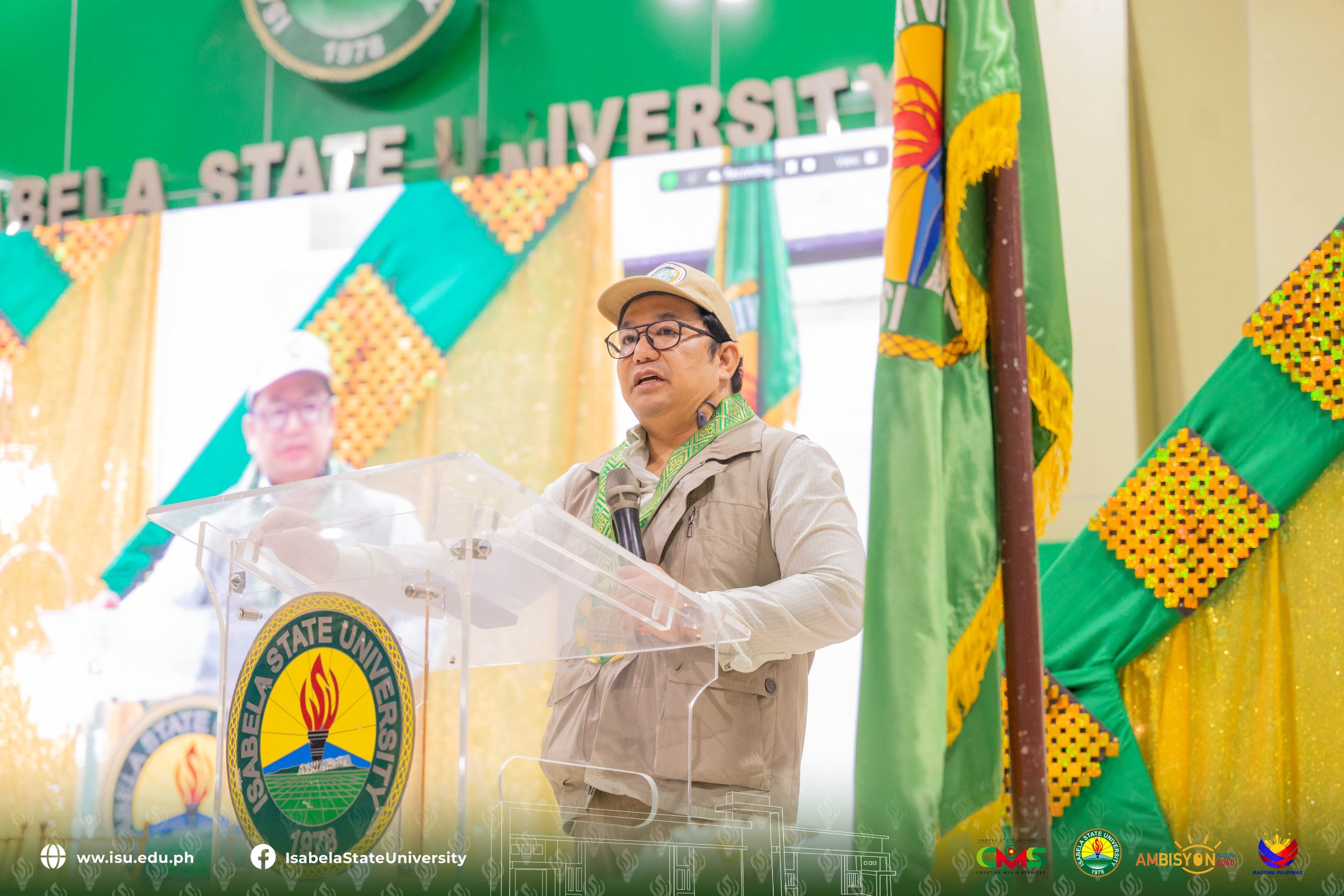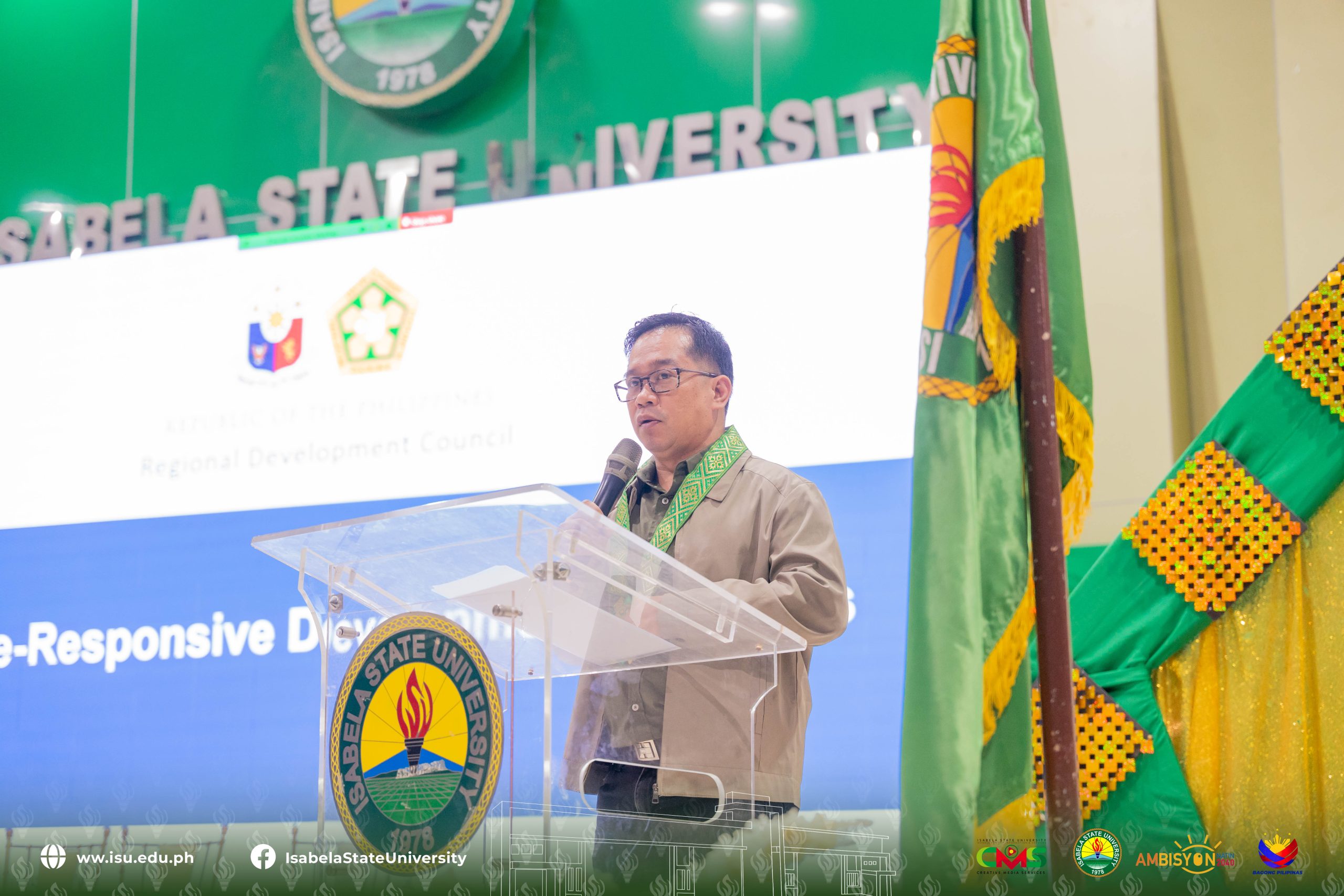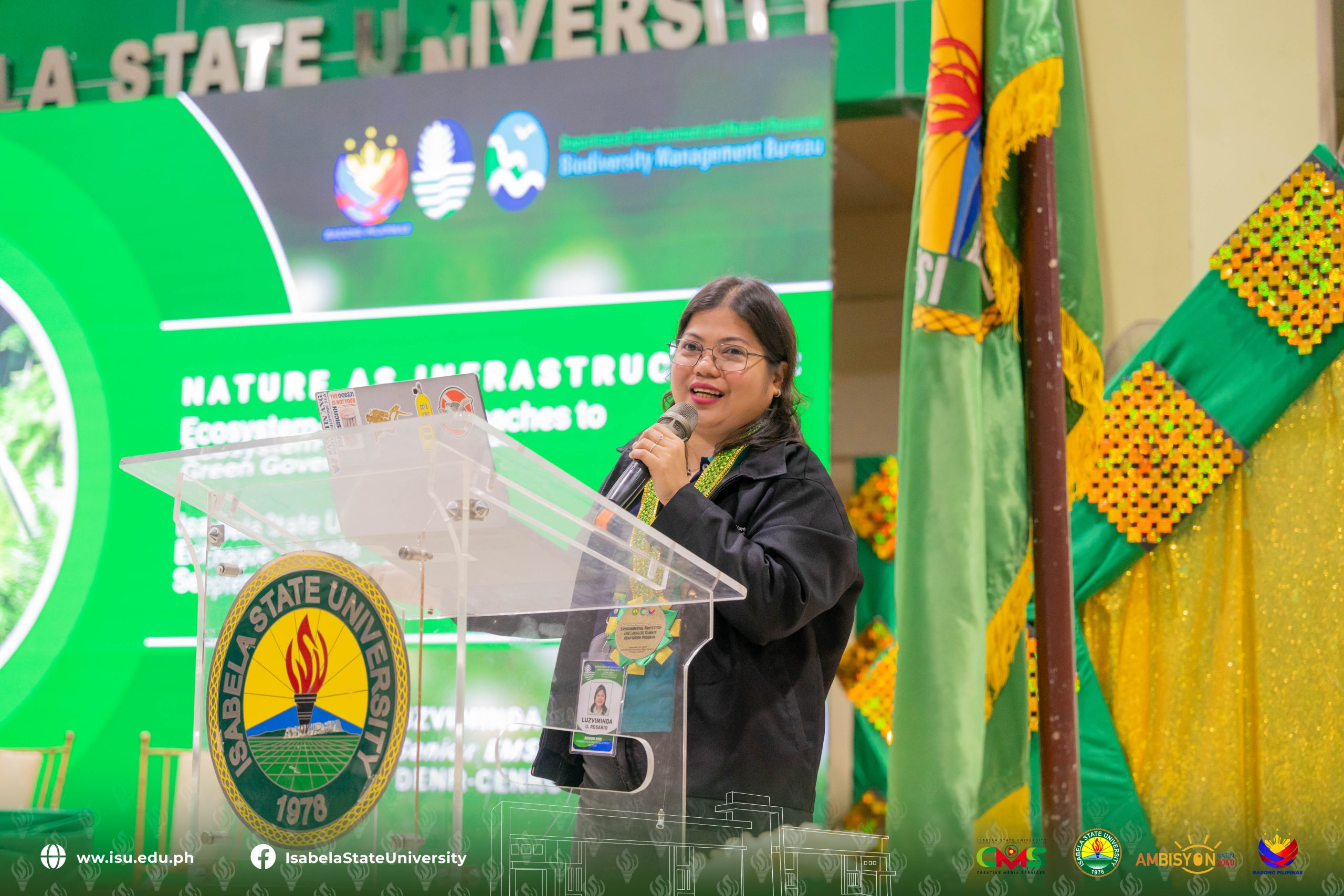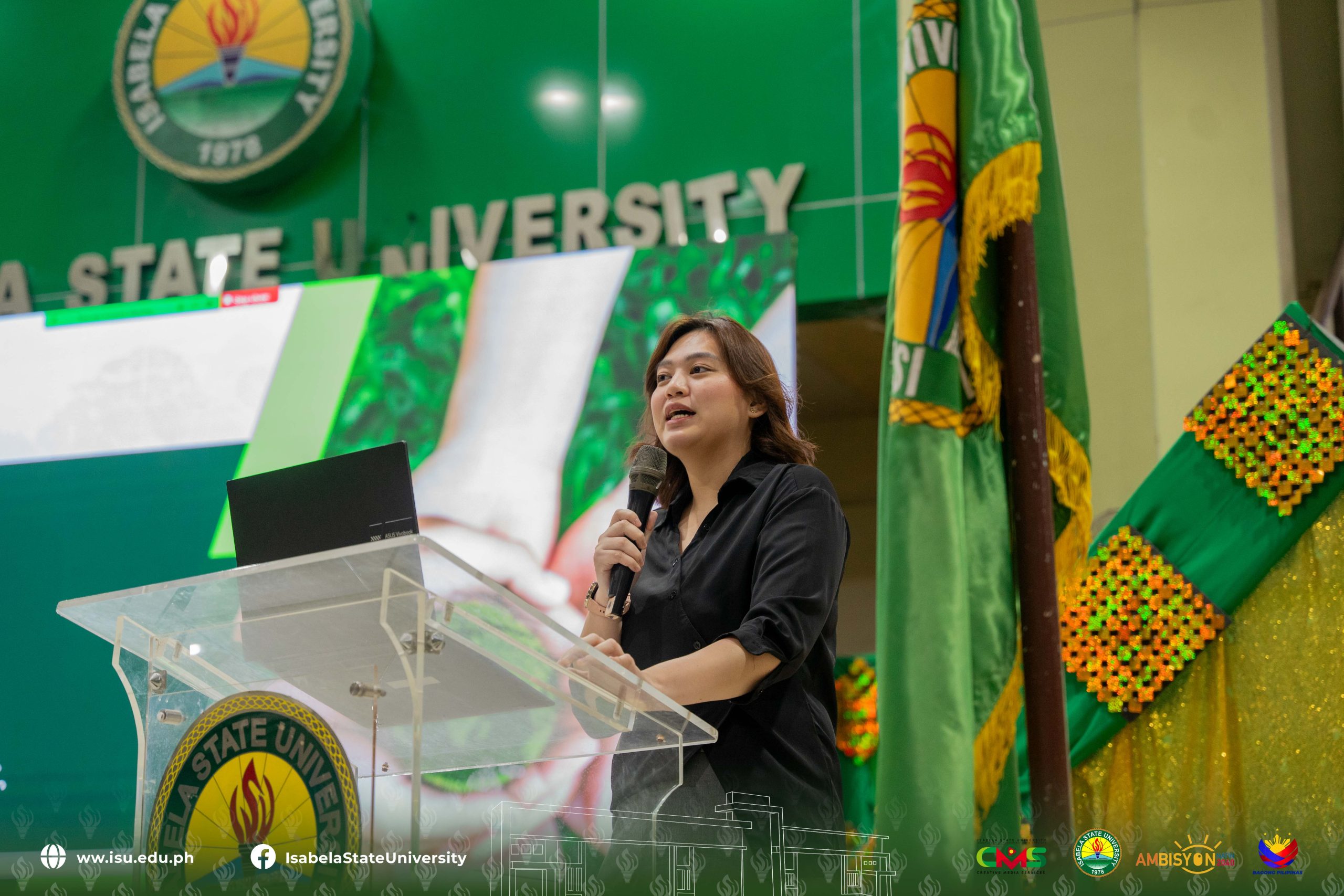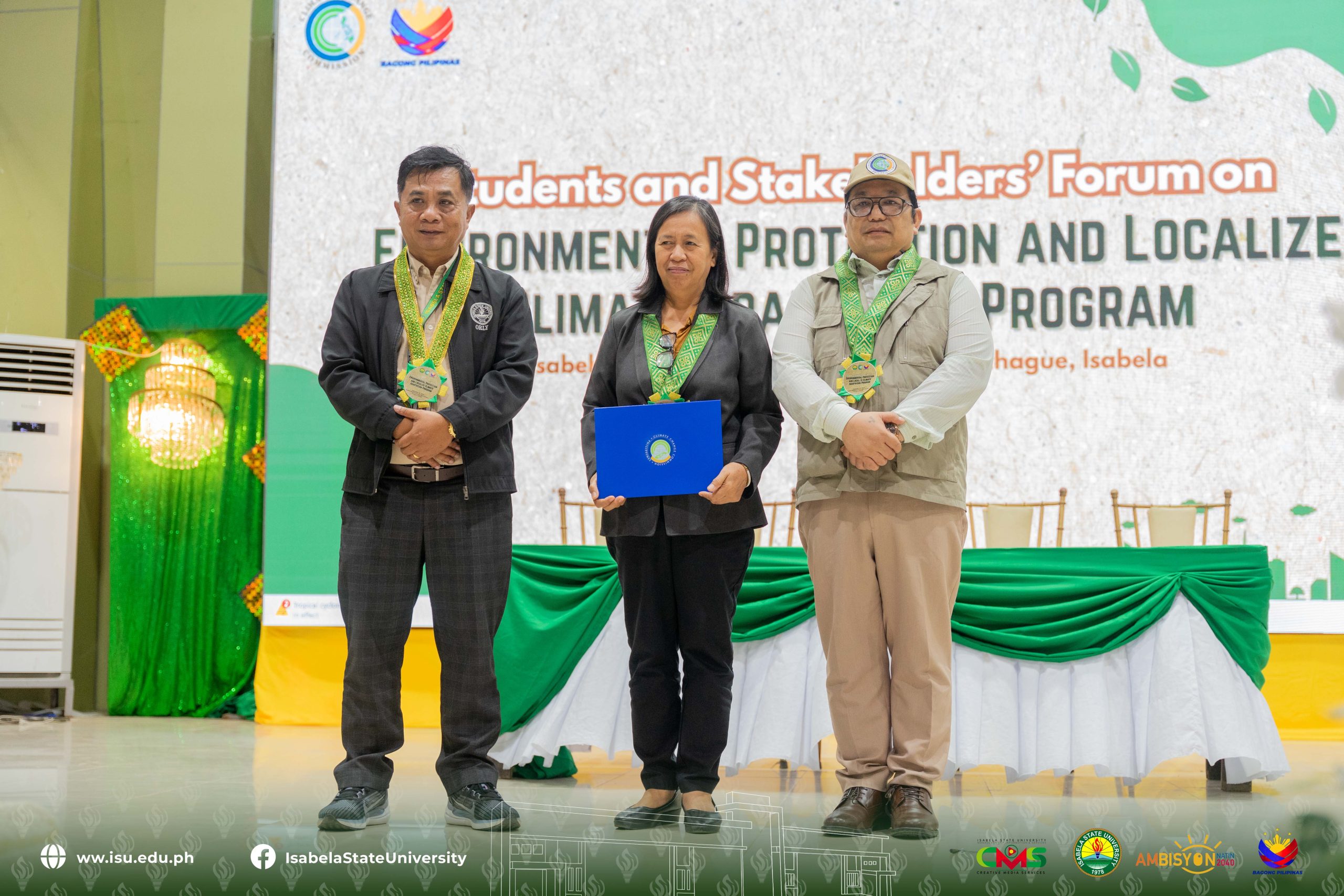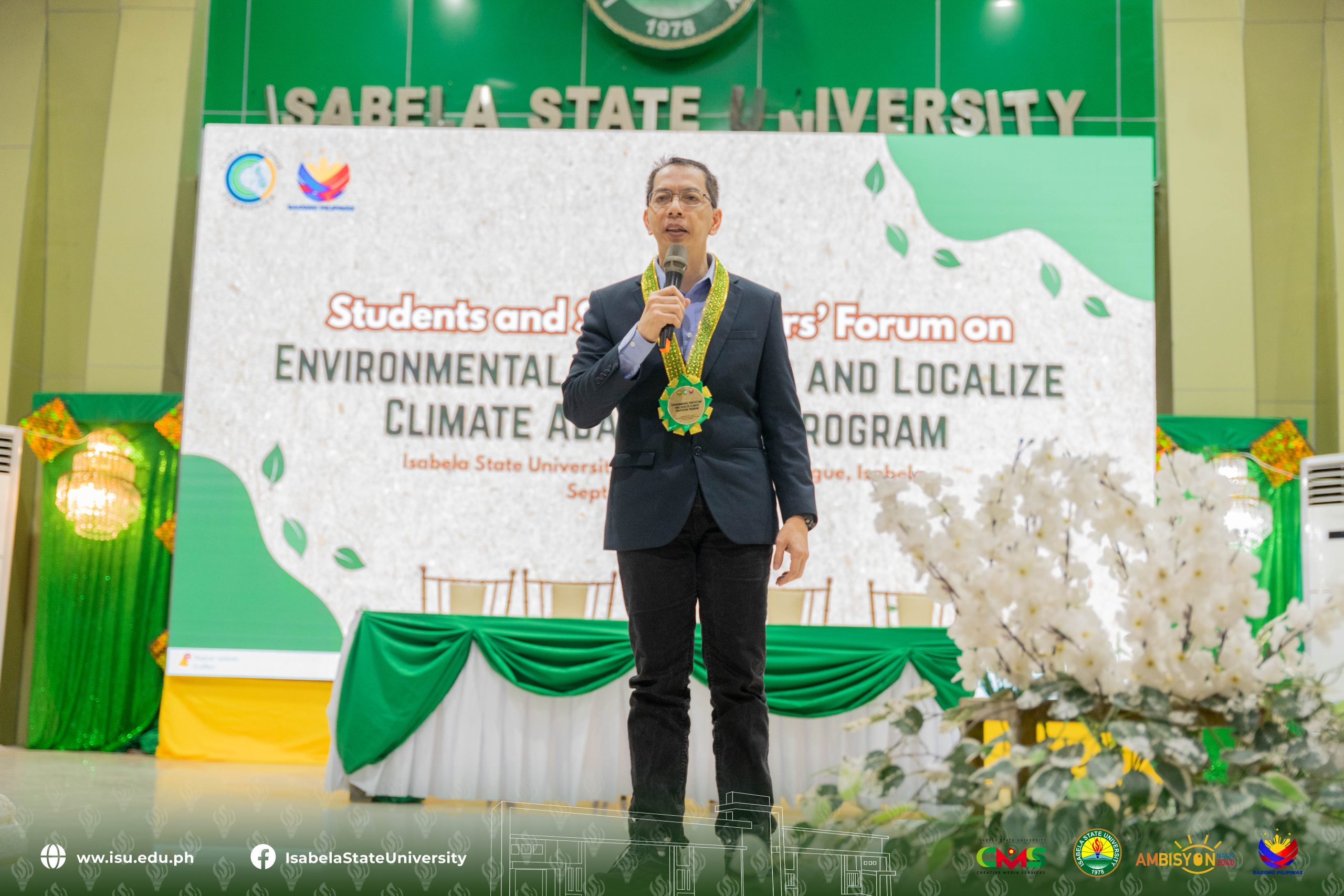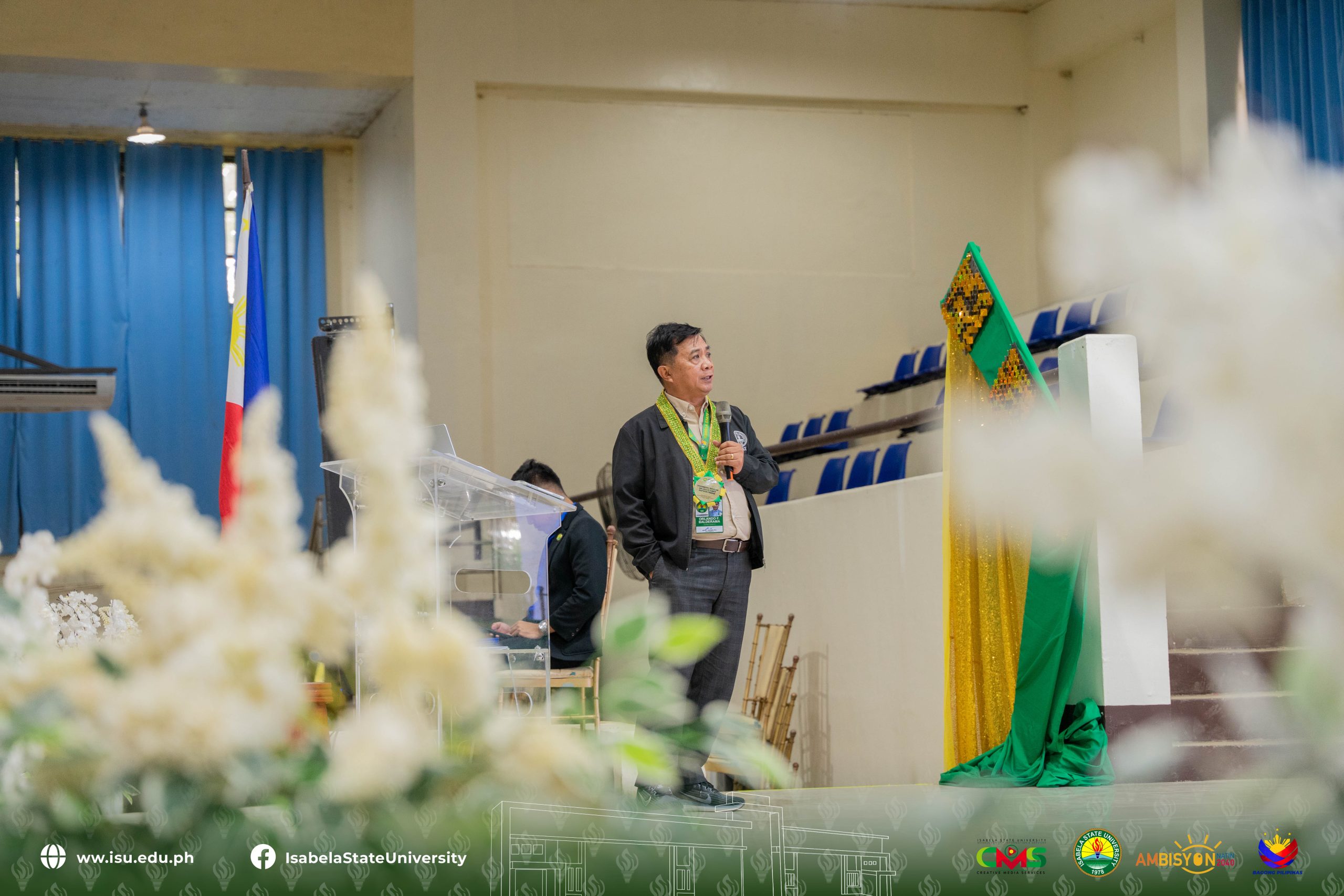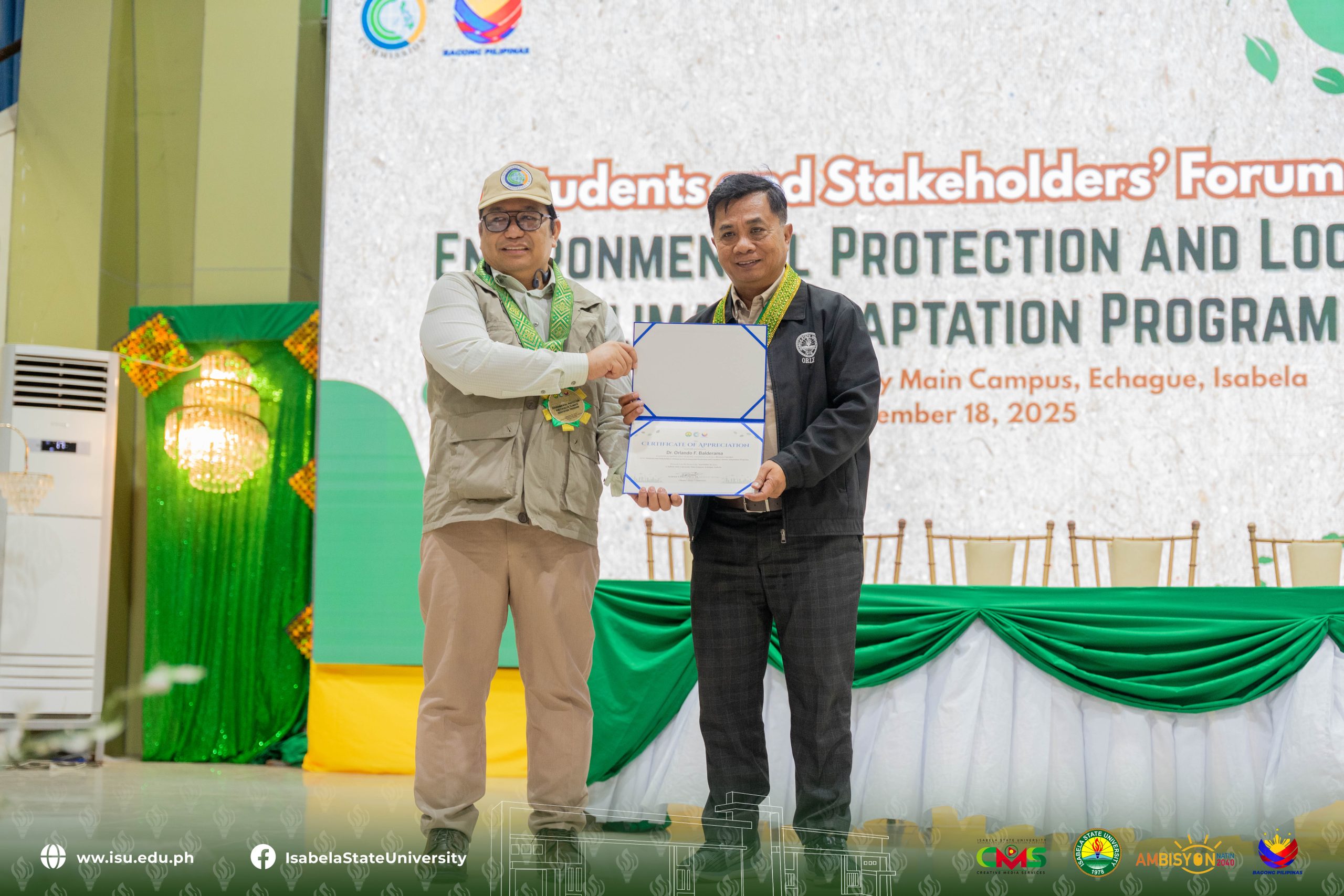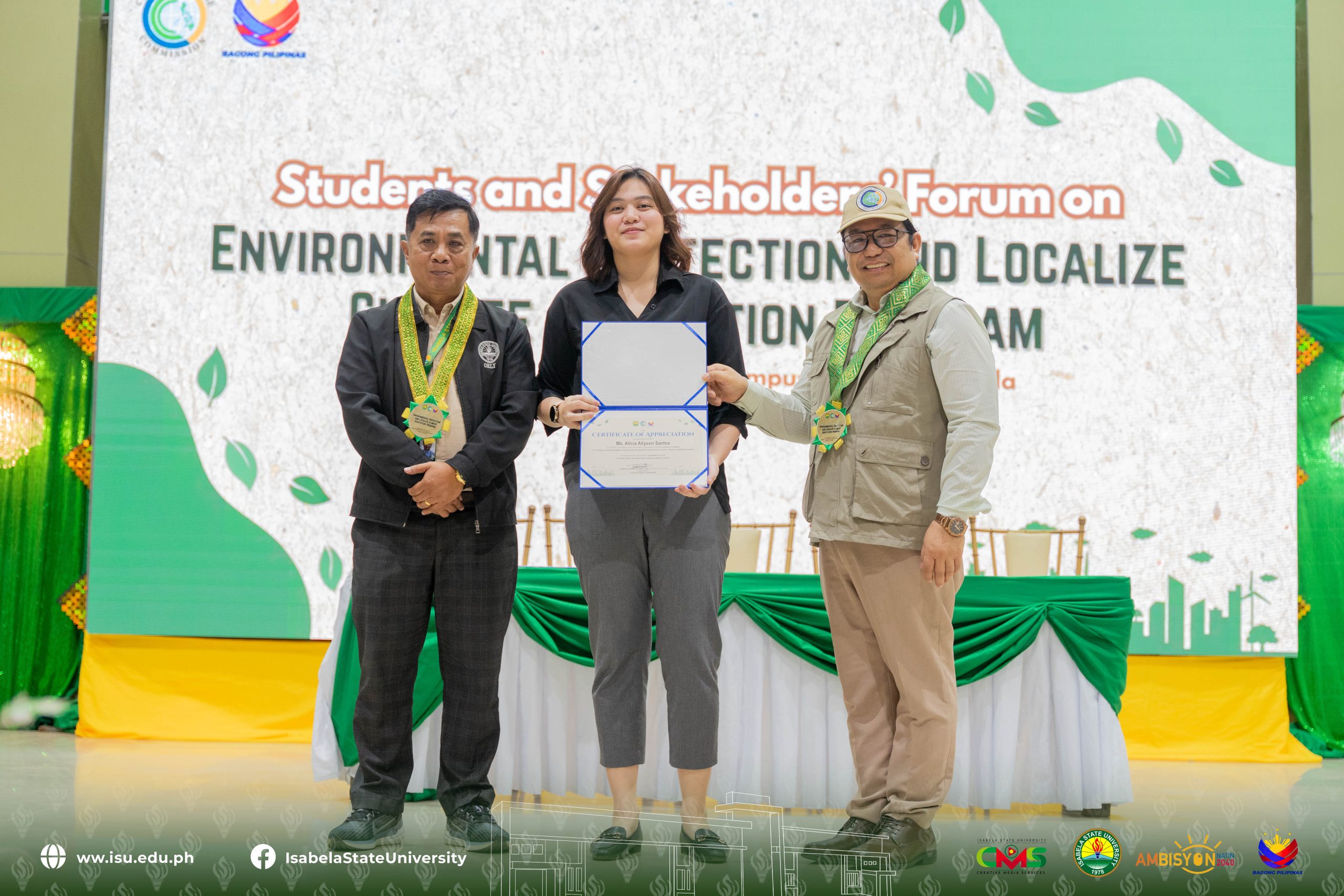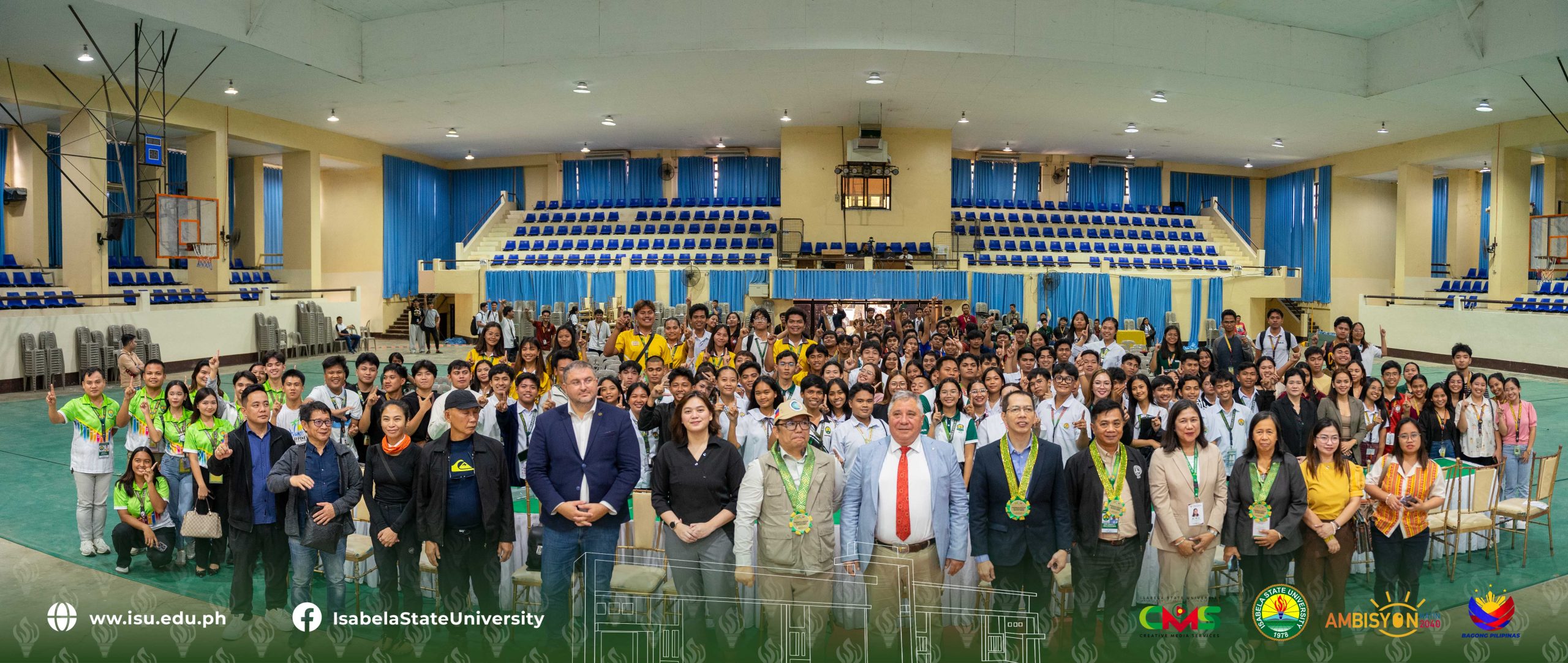
On September 18, Isabela State University (ISU) hosted the Climate Change Commission (CCC), students, local government units (LGUs), water districts, and key stakeholders to discuss and design climate solutions aimed to address the region’s environmental challenges.
The event featured a Student Forum and a Regional Stakeholders Forum, marking the launch of a collaborative, region-wide platform for discussing climate issues. The gathering focused on issues such as droughts, rainfall, watershed degradation, and the region’s water security, all of which threaten agricultural productivity and the livelihoods of local communities.
The goals of the event include to strengthen community resilience, promote sustainable agriculture, and engage the youth in innovative climate action.
With Cagayan Valley as the home to the Northern Sierra Madre, the Philippines’ largest remaining tropical rainforest, the region plays a critical role in maintaining ecological balance and agricultural resilience in Northern Luzon. However, as climate change intensifies, the area is increasingly vulnerable to the adverse effects of erratic weather patterns and the degradation of watersheds.
With these challenges in mind, the event is aligned with the Philippine Climate Change Framework and international commitments such as the Paris Agreement. The initiative aimed to foster local adaptation strategies while addressing the urgent need for resilience-building across the region.
The forums are designed to create a space for open dialogue among diverse stakeholders, encouraging the sharing of knowledge and innovative solutions.
Moreover, the event introduced the concept of carbon markets as a potential financing mechanism for local climate projects. These markets, which allow the buying and selling of carbon credits, could play a vital role in funding nature-based solutions and other community-driven climate adaptation efforts.
As the Philippines continues to move with the impacts of climate change, initiatives like the one hosted by the University serve as a step toward building a more resilient and sustainable future. By empowering local communities and engaging the next generation of climate leaders, the event emphasizes the importance of inclusive and collaborative action in addressing one of the significant challenges of the time.







